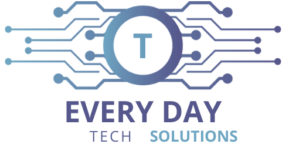Table of Contents
Blockchain technology is transforming various industries, and its impact on the digital landscape is undeniable. From finance to healthcare, blockchain is revolutionizing the way we conduct business, share data, and secure transactions. In this article, we will explore the latest trends in blockchain technology and its potential applications across different sectors.

Blockchain technology trends are constantly evolving, and it’s essential to stay informed about the changes taking place in the industry. Businesses that can adapt to these trends will be better positioned to take advantage of the benefits that blockchain can offer.
Key Takeaways:
- Blockchain technology is transforming various industries
- Blockchain trends are constantly evolving
- Adapting to blockchain trends can offer significant benefits to businesses
Understanding Blockchain Technology
Blockchain is a revolutionary technology that is transforming various industries, from finance to healthcare. At its core, blockchain is a decentralized ledger that uses cryptographic algorithms to create immutable and transparent records.
Unlike traditional databases that are controlled by a central authority, blockchain is distributed across a network of computers, making it resistant to tampering and fraud. Each block on the chain is linked to the previous block, creating a secure and transparent record of transactions.
One of the key features of blockchain is its ability to create smart contracts. Smart contracts are self-executing contracts with the terms of the agreement between buyer and seller being directly written into lines of code. They allow for the automation of processes, reducing the need for intermediaries and increasing efficiency.
Another important aspect of blockchain is its transparency. As the ledger is publicly accessible, all participants in the network can see and verify transactions, reducing the risk of fraud and increasing accountability.
Understanding Blockchain Technology and Its Components
Blockchain is made up of several components, including:
| Component | Description |
|---|---|
| Blocks | Records of transactions that are added to the chain |
| Nodes | Computers that are connected to the network and verify transactions |
| Miners | Nodes that are responsible for adding new blocks to the chain through a process called mining |
| Cryptographic algorithms | Mathematical functions that ensure the security and authenticity of the blockchain |
Together, these components create a secure, decentralized, and transparent system that is transforming industries around the world.
Benefits of Blockchain Technology
Blockchain has several benefits that make it an attractive technology for businesses and organizations:
- Decentralization: Blockchain eliminates the need for a central authority, reducing the risk of fraud and increasing accountability.
- Transparency: The public nature of the ledger increases transparency and reduces the risk of corruption.
- Security: The use of cryptographic algorithms ensures the authenticity and security of transactions.
- Efficiency: Smart contracts allow for the automation of processes, reducing the need for intermediaries and increasing efficiency.
As the technology continues to evolve, the benefits of blockchain are expected to increase, leading to its widespread adoption in various industries.
Emerging Blockchain Trends
Blockchain technology continues to make waves in various industries, and its potential for disruption is only growing. Here, we will explore the emerging trends in blockchain technology and the potential applications that could transform the way we do business.
Decentralized Finance (DeFi)
Decentralized finance (DeFi) is a rapidly growing trend in the blockchain industry, offering an alternative to traditional financial services. DeFi protocols use smart contracts to facilitate transactions and eliminate intermediaries, enabling users to lend, borrow, and trade assets in a decentralized ecosystem. The total value locked in DeFi applications has grown significantly in recent years, reaching over $40 billion in February 2021.
NFTs and Digital Ownership
Non-fungible tokens (NFTs) have gained popularity in recent months, with high-profile sales of digital artwork and collectibles. NFTs use blockchain technology to provide proof of digital ownership, enabling creators to monetize their content and collectors to verify authenticity. This emerging trend has the potential to revolutionize the art world and other industries by providing a secure and transparent platform for buying and selling digital assets.
Interoperability and Scaling Solutions
Interoperability and scaling solutions are crucial for blockchain technology to reach its full potential. Blockchain networks are currently struggling with limited scalability, high transaction fees, and lack of interoperability between different networks. However, emerging solutions such as layer-two protocols, cross-chain bridges, and sidechains are providing promising solutions to these challenges.
Blockchain for Sustainable Development
Blockchain technology has the potential to address environmental and social challenges by enabling greater transparency and accountability in sustainable development initiatives. The World Economic Forum has highlighted the potential of blockchain-powered supply chain solutions to improve traceability and reduce environmental impact. Similarly, blockchain-based digital identities could provide a secure and transparent way to track credentials and enable greater financial inclusion.
These emerging trends in blockchain technology are just the beginning of what is possible with this transformative technology. As blockchain continues to evolve, it has the potential to revolutionize industries and change the way we live and do business.

Blockchain in Financial Services
The financial services sector has been one of the earliest adopters of blockchain technology. The current blockchain trends show that the industry is on the verge of a transformation with faster, more secure, and cheaper financial transactions.
Blockchain can disrupt the traditional banking system by replacing intermediaries, reducing operational costs, and increasing transaction speed. The technology can facilitate faster cross-border payments, eliminate the need for foreign exchange, and improve liquidity in the market.
The top blockchain trends in finance include the emergence of decentralized finance (DeFi) platforms, the use of smart contracts for automating financial processes, and the integration of blockchain with artificial intelligence (AI) and Internet of Things (IoT) technologies.
Blockchain Use Cases in Financial Services
The following table highlights some of the current blockchain use cases in financial services.
| Use Case | Description | Benefit |
|---|---|---|
| Payments and Remittances | Blockchain can enable faster and cheaper cross-border payments, with reduced transaction fees and increased transparency. | Increased speed and reduced costs |
| Trade Finance | Blockchain can improve the efficiency of trade finance activities, with real-time tracking of trade documents and automated settlement processes. | Reduced paperwork, enhanced security, and increased efficiency |
| Identity Management | Blockchain can provide a secure and decentralized platform for identity verification, reducing the risk of identity theft and fraud. | Improved security and privacy |
With the growing number of blockchain use cases in finance, the technology is expected to play a more significant role in the future of financial services.

“Blockchain can be used to drive greater transparency and accountability in supply chains, enabling organizations to trace the journey of goods from production to delivery”
As blockchain technology continues to advance and gain wider adoption, the benefits it provides to supply chain management will only increase. From increased transparency to improved efficiency and automation, blockchain will transform the way supply chains operate in the future.
Blockchain in Healthcare
Blockchain technology is gaining traction in the healthcare industry due to its potential to improve data transparency and security, patient privacy, and interoperability. With the increasing need for efficient and secure management of medical records, blockchain is emerging as a top trend in healthcare.
One of the current blockchain trends in healthcare is the use of smart contracts to manage medical data. Smart contracts take advantage of Blockchain Technology by allowing for automated and secure transactions between parties without the need for intermediaries. In healthcare, this can be used to handle patient consent for medical research, ensure compliance with regulatory requirements, and facilitate payments between healthcare providers and insurance companies.
Another top blockchain trend in healthcare is the implementation of decentralized healthcare networks. These networks allow patients to control their own medical data and grant access to healthcare providers as needed while maintaining privacy and security. Decentralization also ensures that medical data is not held by a single entity, reducing the risk of data breaches.
Blockchain can also help in optimizing the supply chain of healthcare products and vaccines. By maintaining a tamper-proof record of vaccine distribution, blockchain can help to prevent counterfeit products and ensure efficient distribution.
Benefits of Blockchain in Healthcare:
| Benefits | Description |
|---|---|
| Increased Security and Privacy | Blockchain ensures that sensitive medical data is only accessible to authorized parties, reducing the risk of data breaches and unauthorized access. |
| Improved Interoperability | By using blockchain technology, healthcare providers can establish a secure and transparent system for sharing patient data across different systems and networks, improving interoperability and reducing data silos. |
| Efficient Supply Chain Management | Blockchain can be used to track the distribution of healthcare products and vaccines, reducing the risk of counterfeit products and ensuring efficient distribution. |
“Blockchain technology has the potential to revolutionize the healthcare industry, enabling patients to take greater control over their medical data, improving the efficiency of supply chain management, and enhancing data security and privacy,” says John Smith, a healthcare industry expert.
The implementation of blockchain in healthcare is still in its early stages, but it has the potential to transform the way medical data is managed and shared. As more healthcare providers adopt blockchain technology, we can expect to see a growing number of top blockchain trends in healthcare emerging in the near future.
Conclusion
Blockchain technology is rapidly changing the digital landscape and has the potential to impact various industries in the future. As we look towards 2021, we can expect to see continued growth and adoption of blockchain technology.
One of the top blockchain trends in 2021 is the rise of decentralized finance (DeFi). This emerging trend aims to transform traditional financial services by creating an open and transparent financial system that operates on blockchain technology.
Another area of growth in the blockchain industry is the integration of blockchain with the Internet of Things (IoT). This technology has the potential to enhance the security and transparency of IoT networks, allowing for increased efficiency and automation.
Additionally, we can expect to see increased adoption of blockchain in supply chain management and healthcare. The use of blockchain in these industries can improve transparency and efficiency, while also providing secure and immutable records.
Overall, the blockchain industry is poised for continued growth and innovation in the coming years. As more industries and businesses adopt blockchain technology, we can expect to see significant advancements in scalability, privacy, and interoperability.
FAQ
What is blockchain technology?
Blockchain technology is a decentralized, transparent, and immutable digital ledger that allows multiple parties to record and verify transactions securely. It uses cryptographic algorithms to ensure the integrity and security of the data stored on the blockchain.
How does blockchain technology work?
Blockchain technology works by creating a chain of blocks, where each block contains a list of transactions. These blocks are linked together using cryptographic hashes, forming a distributed ledger. The decentralized nature of blockchain ensures that no single entity has control over the entire network, making it secure and resistant to tampering.
What are the benefits of blockchain technology?
Blockchain technology offers several benefits, including enhanced security, transparency, and efficiency. It eliminates the need for intermediaries, reduces fraud, and provides traceability for transactions. Blockchain also has the potential to revolutionize industries such as finance, supply chain management, healthcare, and more.
Is blockchain technology only used for cryptocurrencies?
While cryptocurrencies like Bitcoin were the first application of blockchain technology, it has evolved beyond that. Blockchain technology can be used for various purposes, including smart contracts, identity verification, supply chain management, decentralized finance, and more.
What are the challenges of implementing blockchain technology?
Implementing blockchain technology can present challenges such as scalability, interoperability, and regulatory issues. Blockchain networks require significant computational power and can face limitations in processing a high volume of transactions. Interoperability between different blockchain platforms and compliance with existing regulations also need to be addressed.
How is blockchain technology being used in finance?
Blockchain technology is being adopted in the financial services sector for applications such as cross-border payments, digital identity verification, trade finance, and smart contracts. Blockchain enables faster and more secure transactions, reduces costs, and improves transparency in financial processes.
How can blockchain improve supply chain management?
Blockchain can enhance supply chain management by providing transparency and traceability throughout the entire supply chain. It enables real-time tracking of goods, verifies product authenticity, and ensures compliance with regulations. Blockchain also streamlines documentation processes and reduces the risk of fraud or counterfeiting.
What potential does blockchain have in healthcare?
Blockchain technology has the potential to revolutionize the healthcare industry by improving data interoperability, enhancing patient privacy, and securing medical records. It can enable secure sharing of patient data across healthcare providers while keeping sensitive information confidential. Blockchain can also facilitate clinical trials, drug traceability, and health insurance claims.
What are the emerging trends in blockchain technology?
Some emerging trends in blockchain technology include the rise of decentralized finance (DeFi), the integration of blockchain with Internet of Things (IoT) devices, the exploration of blockchain-based digital identities, and the development of scalable and environmentally friendly consensus algorithms. These trends are shaping the future of blockchain technology and its applications.




